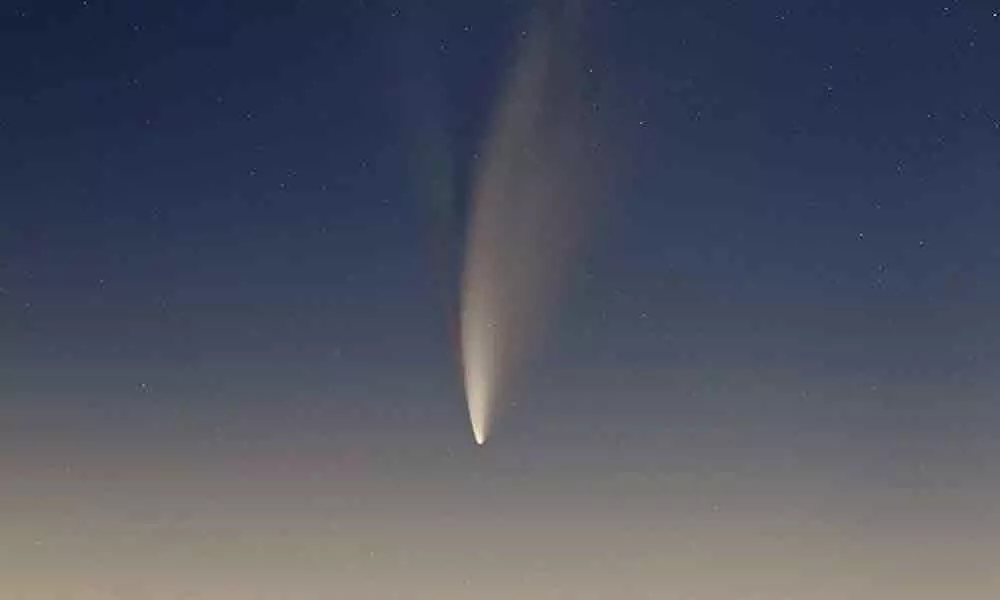NEOWISE: Watch the Rare Comet in India for Next 20 Days

NEOWISE the Rare Comet in India for Next 20 Days
Neowise will be evident after sunset for around 20 minutes for the next 20 days.
The recently discovered rare comet which is called NEOWISE or C/2020 will be making its closest approach to our planet Earth on July 22. The comet will be visible in the north-western sky from July 14 i.e. is today and we will be able to see with a naked eye.
This was also confirmed by Pathani Samanta the deputy director of Planetarium in Odisha's Bhubaneshwar. "From July 14, C/2020 F3 will be clearly visible in the north-western sky. It will be visible after sunset for around 20 minutes for the next 20 days. People can observe it with naked eyes," Dr Subhendu Pattnaik was quoted by the news agency ANI.
How to watch NEOWISE comet
The NEOWISE comet was visible from the hour before dawn sky and can be seen in the mid of the month. The comet can be seen as an evening object from mid-July onwards, explained NASA.
"A far better viewing perspective will be available in the evening sky starting around July 14, when it will appear low in the northwest sky (20 degrees from the horizon) for around 20 minutes. In the evenings to follow, the comet will rapidly climb higher in the sky and will be visible for a longer period," said Dr Pattnaik to ANI.
For a better viewing experience, a pair of binoculars is recommended. "Around 30th July the comet will be visible near Ursa Major (Saptarshi Mandal) at an altitude of 40 degrees and will be visible for an hour. After July it will fade away very fast and will not be visible to the unaided eye. A pair of binoculars or a small telescope will enhance its visibility," Pattnaik told ANI.
The rare comet was discovered by NASA's NEOWISE team in March 2020, and the comet will make a close approach to Earth on July 22 - at a distance of about 103 million kilometres from Earth. The comet is already headed back towards the outer solar system.
















